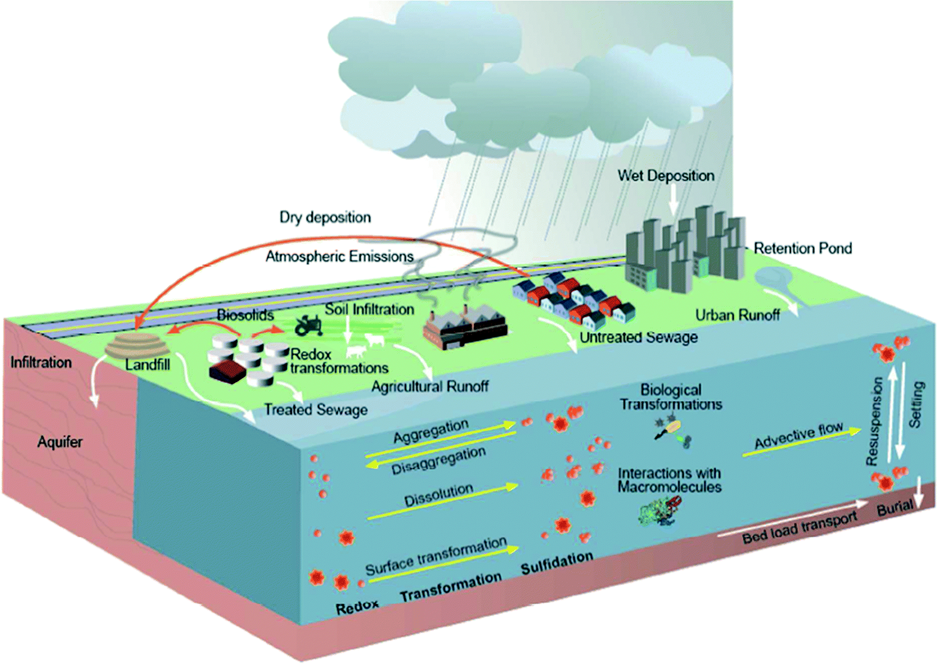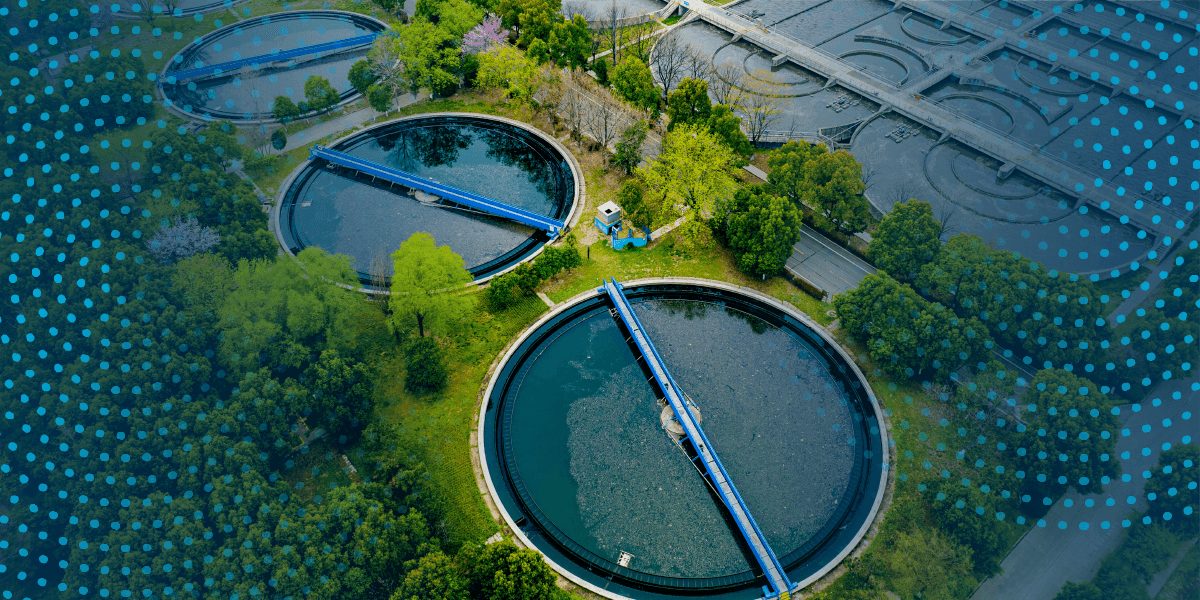Exploring Water Technology Startups: Exactly How They Transform Sustainable Solutions
Water Technology startups are becoming essential gamers in the mission for lasting solutions to global water issues. These firms take advantage of ingenious modern technologies to enhance water performance and administration. Their payments address pushing obstacles such as shortage and contamination. Regardless of their possibility, they encounter different obstacles that can impact their success. Recognizing these dynamics clarifies the future of water sustainability and the role these start-ups may play in forming it.
The Relevance of Water Technology in Today's World
As international water deficiency heightens, the relevance of water Technology ends up being progressively apparent. Water Technology plays a vital function in addressing the difficulties presented by enhancing and lessening freshwater sources demand. It includes a broad array of developments, consisting of innovative purification systems, wastewater therapy modern technologies, and clever watering solutions. These advancements not just boost the performance of water use but additionally promote lasting methods throughout different sectors, consisting of agriculture, industry, and city advancement.
Moreover, the significance of water Technology expands beyond source monitoring. It promotes strength versus environment adjustment impacts, such as droughts and floods, by supplying adaptive options for water preservation and administration. In addition, it sustains public wellness by making certain access to clean and safe drinking water. As the world encounters growing water-related obstacles, the combination of innovative water modern technologies is crucial for promoting lasting development and securing water schedule for future generations.
Cutting-edge Solutions From Water Technology Startups
While conventional techniques to water monitoring have actually offered their objective, a new wave of water tech start-ups is changing the sector with innovative remedies (Water Technology Startups). These business take advantage of sophisticated innovations to address pushing water concerns, such as shortage, contamination, and inefficient circulation. Lots of startups utilize expert system and machine knowing to enhance water use and anticipate need, causing more lasting techniques
Additionally, several companies focus on creating advanced filtering systems that eliminate pollutants and make water risk-free for usage. Others check out decentralized water therapy modern technologies, enabling communities to manage their water resources better. Furthermore, some startups are pioneering clever watering services that decrease water waste in agriculture, promoting ecological preservation.
Instance Researches: Successful Water Technology Startups
Countless water Technology startups have emerged as leaders in addressing global water obstacles via innovative approaches. One remarkable instance is Xylem, which focuses on water analytics and wise infrastructure to maximize water use and decrease waste. Their solutions have been executed in various districts, demonstrating considerable enhancements in water management effectiveness.
An additional successful start-up, No Mass Water, has created solar-powered hydropanels that extract water vapor from the air, offering sustainable drinking water in deserts. Water Technology Startups. This Technology has been deployed in numerous countries, guaranteeing communities have accessibility to clean water
AquaVenture Holdings operates a diverse profile of water-as-a-service remedies, dealing with water deficiency with desalination and wastewater therapy. Their tasks have confirmed important in areas dealing with severe water shortages, showcasing the potential of cutting-edge water technologies to produce lasting, favorable effects. These case research studies highlight the transformative capacity of start-ups in the water Technology sector.
The Role of Smart Technology in Water Administration
Smart Technology plays a vital function in modern-day water management by leveraging IoT applications to enhance resource use. Information analytics enhances effectiveness by offering actionable understandings, while remote surveillance options allow real-time oversight of water systems. With each other, these advancements change how water is managed, promoting sustainability and functional performance.
IoT Applications in Water
As water scarcity and management challenges increase internationally, the integration of Web of Points (IoT) applications has actually become a pivotal service in enhancing water sources. IoT Technology assists in real-time surveillance and analysis of water systems, allowing a lot more efficient usage and management. Sensing units deployed in different water infrastructures can track high quality, circulation prices, and leak, offering important information to stakeholders. This data encourages utilities and customers to make enlightened choices, decreasing waste and enhancing preservation initiatives. In addition, smart watering systems utilize IoT to maximize water shipment for farming, ensuring that crops obtain the correct amount of water at the correct time. Overall, IoT applications are transforming traditional water monitoring practices, promoting sustainability and durability in water source systems.
Information Analytics for Effectiveness
Using data analytics is vital for improving effectiveness in water administration. Water Technology start-ups are progressively using sophisticated analytics to maximize source allotment and reduce waste. By analyzing information from numerous sources, these start-ups can determine patterns and trends that inform much better decision-making. As an example, predictive analytics can forecast water need, allowing utilities to adjust supply appropriately, consequently reducing surpluses and scarcities. Furthermore, real-time data handling enables the instant detection of leakages and inadequacies within circulation systems, significantly decreasing operational prices. Data-driven insights equip stakeholders to apply targeted preservation methods, promoting sustainable practices. Essentially, incorporating information analytics into water monitoring not only simplifies procedures yet additionally advertises lasting sustainability in water source usage.
Remote Tracking Solutions
While conventional water management systems typically have problem with inadequacies, remote tracking services are transforming how water sources are managed. These cutting-edge innovations enable real-time data more info collection and analysis, allowing stakeholders to keep track of water top quality, circulation rates, and usage patterns from afar. Making use of sensing units and IoT devices, remote tracking provides immediate insights that promote positive decision-making. This shift not just improves functional effectiveness however likewise promotes sustainability by minimizing water waste and optimizing resource appropriation. Furthermore, remote surveillance systems can determine possible concerns before they escalate, therefore decreasing the danger of contamination or infrastructure failure. As water Technology start-ups remain to develop these solutions, the market is poised for substantial improvements in sustainable water management practices.
Obstacles Facing Water Technology Startups
Water Technology startups run into considerable obstacles that can prevent their growth and success. Secret issues include protecting adequate funding, steering through complicated regulatory settings, and competing in a congested marketplace. These barriers need critical preparation and innovation to get rid of.
Funding and Financial Investment Hurdles
Technology in water Technology holds enormous potential for resolving international challenges, startups in this field typically face substantial funding and financial investment difficulties. Several investors stay careful, viewing the water market as risky as a result of its complicated regulatory landscape and long growth timelines. Furthermore, startups usually struggle to show prompt profitability, which can prevent prospective backers. Traditional equity capital may neglect water technology, preferring industries with quicker returns, such as tech or durable goods. Moreover, safeguarding gives and federal government funding can be competitive and taxing, further complicating financial stability. Water Technology Startups. Because of this, numerous ingenious water Technology startups find themselves in a ragged edge, needing creative funding methods to browse these monetary barriers and attain their objectives
Regulative Conformity Issues
Guiding regulatory conformity is a substantial obstacle for start-ups in the water Technology field, as they must face a myriad of neighborhood, national, and worldwide guidelines. These guidelines often incorporate water quality requirements, environmental defense laws, and safety protocols, which can differ extensively throughout jurisdictions. Start-ups may locate it hard to browse this complex landscape, especially when scaling procedures or entering new markets. The prices related to conformity can be significant, diverting sources away from advancement and product growth. Furthermore, delays in acquiring essential authorizations or certifications can hinder growth and market entrance. Subsequently, a durable understanding of regulatory frameworks is necessary for these startups to ensure sustainable procedures and prevent possible legal effects.
Market Competition Characteristics
As water Technology startups arise in a competitive landscape, they deal with numerous difficulties that can hinder their growth and advancement. Established companies commonly dominate the market, leveraging resources and experience to maintain their positions. Startups battle with restricted financing, which restricts r & d capacities, making it challenging to contend on Technology and pricing. In addition, the rapidly evolving nature of water modern technologies demands consistent adjustment, more stressing startup sources. Regulative obstacles can complicate market entrance, as conformity with ecological criteria is important yet expensive. Ultimately, attracting skilled skill in a particular niche area provides another challenge, as larger firms may provide even more attractive work packages. As a result, these elements create a complicated environment for water Technology startups intending to succeed.

The Future of Water Technology and Sustainability

The future of water Technology will likely concentrate on integrating expert system and data analytics to maximize water distribution and usage patterns. By harnessing real-time information, companies can anticipate lacks and manage sources extra effectively. Sustainable practices will become a cornerstone of the sector, motivating circular economies where water is recycled and dealt with. Eventually, the ongoing advancement of water Technology will certainly be vital in developing durable frameworks efficient in fulfilling the challenges postured by climate modification and population development while promoting ecological stewardship.
Regularly Asked Questions
What Are the Key Metrics for Reviewing Water Technology Startups?
Secret metrics for reviewing water Technology startups consist of market capacity, scalability, consumer acquisition costs, profits development, technology development, governing compliance, environmental impact, affordable benefit, and group experience, all vital for figuring out lasting practicality and success.
Just How Can Individuals Assistance Water Technology Innovations?
Individuals can sustain water Technology developments by buying start-ups, promoting for policy changes, taking part in neighborhood campaigns, sharing understanding about lasting techniques, and promoting awareness of water concerns with local events and social media.
What Are Usual Funding Sources for Water Technology Startups?
Usual funding resources for water tech startups include venture funding, federal government grants, crowdfunding platforms, angel investors, and business collaborations. These economic methods help assist in innovation and advancement in lasting water monitoring innovations.

Which Industries Benefit Many From Water Technology Advancements?
Industries such as farming, power, production, and metropolitan services benefit considerably from water Technology developments. These advancements boost water effectiveness, minimize prices, and promote sustainable practices, ultimately adding to ecological conservation and resource management.
Exist Any Kind Of Governing Difficulties Specific to Water Innovation?
Yes, water Technology encounters regulatory obstacles, including conformity with environmental requirements, permitting procedures, and differing local guidelines. These intricacies can hinder development and slow the application of brand-new technologies in the water management sector.
Water Technology startups are arising as critical gamers in the pursuit for sustainable options to worldwide water problems. As worldwide water scarcity magnifies, the importance of water Technology ends up being significantly evident. Others discover decentralized water treatment innovations, enabling neighborhoods to manage their water sources more effectively. One more effective start-up, Absolutely no Mass Water, has actually developed solar-powered hydropanels that extract water vapor from the air, giving sustainable alcohol consumption water in dry regions. Their tasks have actually proven crucial in regions encountering extreme water shortages, showcasing the capacity of ingenious water technologies to produce long-term, positive effects.